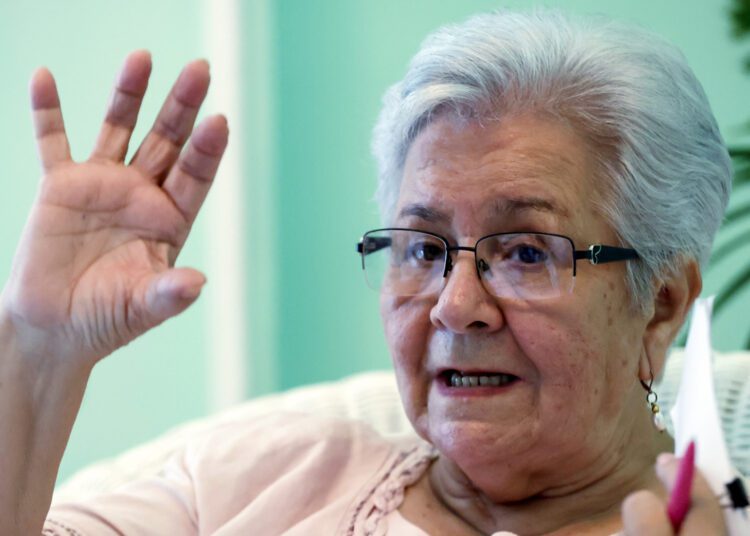By Juan Palop
For Gladys Bejerano, Cuba’s comptroller general, the country’s most notorious case of corruption in decades, that of former deputy prime minister and former Economy Minister Alejandro Gil, felt like a “betrayal.”
The top auditor of ministries and state enterprises on the island highlighted in an interview with EFE the “connotations” of the scandal, becoming the first senior Cuban official to speak about Gil since the investigation was announced two months ago.
“It hurts and it hurts a lot because one thinks as a colleague ― and the people, as a Cuban ― that a person who has been at that level, who has been handling the situations, the sacrifices that have had to be made…, does not have a corresponding attitude, one really feels it as a betrayal, as something that is not right, and that is how we all feel. But we have the morality and the courage to face it,” she affirmed.
Bejerano, 77 years old, has been leading the Comptroller General’s Office for 15 years and auditing for 20 years. She advocates drawing “lessons” from this “sadly negative lesson.”
Gil was dismissed as Minister of Economy on February 2 without public explanation, but on March 7, President Miguel Díaz-Canel announced that he was accused of “serious errors.” He spoke, without details, of “corruption,” “simulation,” and “insensitivity.”
“Every time there has been an event, it has been made public. “I can assure you of that,” says this member of the Central Committee of the Communist Party of Cuba (PCC, the only legal one), convinced that “sooner rather than later and to the extent of being objective, all the information” will be provided.
She emphasized that the Cuban system does not minimize corruption, “neither because of the amount nor because it is from below or above,” although she understands that this case has “greater importance.” She clarified that the investigation into Gil did not start from the Comptroller General’s Office.
Bejerano recognizes that the crisis has increased corruption somewhat because “there is a greater need” and a shortage “of everything,” although “it is not a justification.” Some people, she pointed out, “give in to the black market” and others take advantage, “even cruelly.”
She indicated that 76% of the illegalities detected occur “at the grassroots level” and that his “battle” is to reduce them to “zero,” as a matter of “principles” and “convictions” of the revolution.
“People don’t parachute into corruption. It is a process: corruption is decomposition. It is a process of loss of values, self-esteem, self-respect…. Others are out of self-sufficiency, out of vanity, out of arrogance,” she specified.
Bejerano admits that 23% of the country’s control systems have deficiencies, mainly due to a lack of technical or human capabilities (only 60% of the Comptroller General’s positions are filled): “The controls are not at the level” that the Comptroller’s Office wants and that the country, the government and the PCC need,” she said.
He also explained that the GAESA business conglomerate, of the Armed Forces, is not under her supervision. This state group ― which includes telecommunications, almost the entire tourism sector, remittances, importing and distributing firms, banks, gas stations, real estate agencies and other businesses ― represents the main contribution to the gross domestic product (GDP).
She said that GAESA has “higher discipline and organization” due to its decades of business experience and that the Comptroller Office concentrates “forces” where “advances” are needed.
Regarding the link between corruption and growing inequalities in the country, Bejerano linked it to the emergence of the private sector and pointed out that some people have more because they work and “have results,” but she believes that there are also “illegalities.”
“We are not going to let either the state or the private sector commit these types of crimes and offend and mistreat the people. That cannot be allowed: it is not what we want, it is not the model. We want honest, fighting and hard-working people to be able to have their business in order, fulfilling their obligations to the treasury and to society,” she answered.
Regarding the execution of the budget, also the responsibility of the Comptroller’s Office, she advanced that so far this year “revenues were met” and “expenses were reduced.” “There is, we could say, a favorable behavior,” she indicated, although she immediately pointed out that “it is not that the problem is already solved” because the public deficit is “quite high.”










